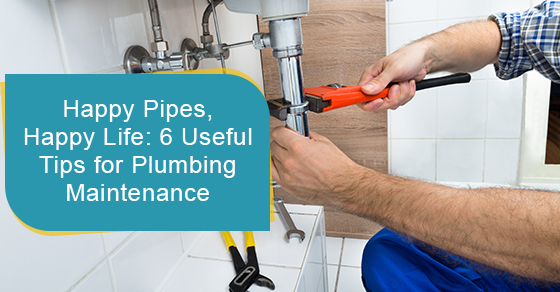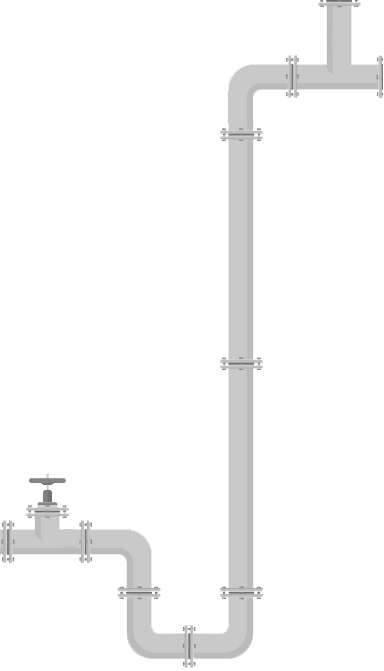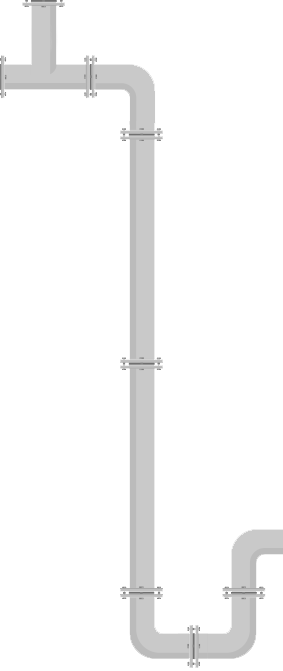Happy Pipes, Happy Life: 6 Useful Tips for Plumbing Maintenance
Posted by Jason Genah on 22-09-2022

High-quality plumbing fixtures around your home are an asset for keeping it in good condition, prolonging its state, and preventing water damage.
Your drains, pipes, and water outlets must get adequate care and maintenance to prevent spending outrageous amounts of money fixing your pipes or, worse, dealing with a flood in your home.
When you know basic plumbing practices and employ the services of a qualified plumbing company, you ensure that your pipes, eavestroughs, sewers, toilets, and drains are in good condition.
At Drain King Plumbers, make certain that your plumbing lasts a long time, and if you have any plumbing issues, we are always happy to help. If you reside in Toronto, our licensed plumbers can help you maintain the drainage system in your home with our quality plumbing services.
Even with high-quality drainage systems in your home, appliances will wear down over time without proper maintenance.
At Drain King Plumbers, we are concerned about the quality of your sewers, pipes, and faucets, so we have highlighted six tips to help you maintain plumbing structures around your home to avoid burst pipes, clogged drainages, or even a flood.
What is preventive plumbing maintenance?
Preventive plumbing maintenance is a routine or method to ensure that plumbing systems around your home function optimally at all times.
Plumbing is essential to your home’s well-being, and you should pay attention to even the slightest changes in your pipes. Preventive maintenance will spot problems in your plumbing appliances before they become larger issues.
As homeowners, we know that ensuring no leaks in your pipes and preventing water damage around your home is a priority. Preventive maintenance will help you avoid plumbing problems in the future.
6 Tips for Plumbing Maintenance
1. Check showerheads, aerators, and faucets regularly
Over time, you may notice that the pressure with which water comes out of your showerhead has lessened.
This reduction is a result of debris that has accumulated in the showerhead throughout its use. To restore your showerhead, dump it in vinegar and let it sit for a while.
Regularly checking aerators and faucets around your house for water stains and immediately locating any leaks is good practice. Do not ignore such signs, as they may pose a bigger threat in the future.
Occasionally soaking your aerators and faucets in vinegar is good practice, too, in order to remove debris around them.
2. Keep your drains clog-free
Keeping your drains clog-free is crucial for the longevity of your pipes, drains, and all plumbing fixtures around your home. It would be best only to allow water and human waste down your drains to prevent clogging.
Every month, It is good practice to use vinegar and baking soda to remove clogs in your drainage and prevent havoc in the future.
3. Check for leaks
It is wise to conduct monthly checks on your pipes, drains, sinks, toilets, bathtubs, washing machines, and all water outlets around your home. This way, if there happens to be a leak, you can fix it quickly.
Grab a paper towel and lightly dab the pipes beneath your sink or toilet to conduct a proper check. Your paper towel should come out dry; if it does not, you have leaks in your pipes.
Another way to check for leaks around your toilets is to drop food colouring in your toilet bowl and wait for one or two hours. If the water in the bowl finds its way to the bathroom sink, there is a leak.
Trace the leak; it may just be a quick fix, and you will not need a plumber. If you cannot find the leak, call a licensed plumber to check it out.
4. Examine the pipes for rust
Rust around your pipes means that there is a leak, and you must act promptly. Examining your pipes for rust will enable you to spot plumbing problems around your house quickly.
It also means that you will be saving money on your water bills. Leaks around your home will cause water waste, resulting in paying for water you did not use.
5. Only flush what you can flush
This tip is crucial, and you should consider applying it to your maintenance routine. Trying to flush objects or substances that you should not flush down your drains can be traced to several leaks, blockages, and burst pipes around your homes.
These objects will cause your drains to clog, build pressure in them as water tries to pass through, and cause a burst pipe.
Some items that should not go down your drains are:
- Cooking oils
- Hair
- Disposable diapers
- Sanitary napkins
- Sanitary pads
- Paper towels
- Cotton balls
- Coffee grounds
- Eggshells
- Bones
Also, although your garbage disposal makes it easy to eliminate food waste, it does not replace a garbage can. It is not wise to feed your garbage disposal nuts, shells, potato peels, and stringy food, or they will clog your drain.
6. Monitor your water pressure
High pressure is not bad, but it will strain your pipes over time, causing them to wear quickly or burst.
To check the water pressure in your home, screw on a pressure gauge to a hose bib and ensure it is between 55-70 pounds. The water pressure must not exceed 80 pounds. Otherwise, call your plumber.
Why You Should Practice Preventive Maintenance
A fully functional plumbing system will give you peace of mind. It will help ease your worries, knowing that you will not come home to a flooded house or have your pipes burst abruptly. It is also quite discomforting to have to deal with clogged drains constantly.
Preventive maintenance will ensure that you do not continually have to deal with plumbing problems in your home.
At Drain King Plumbers, we prioritize our customers’ comfort. Therefore, we only use the latest technology with high-quality materials to fix any drainage problems you may have.
To learn more about our drain plumbing services in Toronto, call Drain King Plumbers at 1-833-983-5301 or visit us online.




